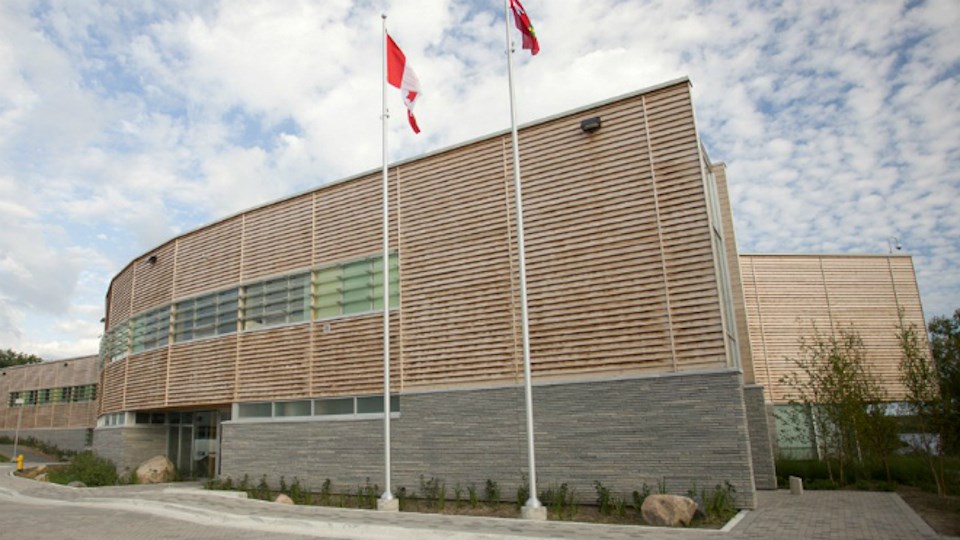Laurentian University must not abandon its legacy of being a global leader in the environment as it restructures, the director of the Vale Living with Lakes Centre told the LU board of governors at their Oct. 29 meeting.
Back in April, Laurentian made massive cuts to its programs and employees. Among the programs cut were some related to the environment. That includes undergraduate programs in ecology, environmental science, environmental studies, major restoration ecology and restoration biology.
John Gunn said Laurentian’s environmental programs are what the local university is known for, given its work on environmental remediation in the Sudbury area, and this couldn’t be more important than it is now, as we face the mounting climate crisis.
Sudbury has “one of the most significant recovery stories the world has ever seen,” and Laurentian has played a huge role in that, he said.
“In 1960, the year Laurentian was formed, was the largest point source of sulphur dioxide in the world,” Gunn said. “And today the Superstack is being torn down, and we’re down to two per cent (of the sulphur dioxide) of what it was then.”
Clearwater Lake is the longest-running acid rain monitoring site in the world, Gunn said. It shows how an untreated lake can recover by the removal of pollutants from the atmosphere. The science is now looking at how microbes are playing a role.
“It is one of the most permanent findings we have on earth, that we don’t need to treat waters,” he said. “We treat them once with the problem where it originates, not in the lake. What we’ve learned is there’s a lot of science to this, new science.”
A number of community leaders were invited by Gunn to listen to his Oct. 29 presentation at the virtual board of governors meeting, which he referred to as a “community meeting” of sorts.
Many Sudbury political leaders were in attendance, including Nickel Belt MP Marc Serré, local MPPs France Gélinas and Jamie West, along with Mayor Brian Bigger. Gunn said he would privately brief newly elected Sudbury MP Viviane Lapointe at a later date.
A number of industry partners from companies such as Vale and Glencore also listened in on the meeting.
“I have to thank openly Vale and Glencore for rescuing us this year,” Gunn said. “We would not be able to operate this year if both companies had not seeded us sufficient cash to keep the students going during the CCAA process."
Gunn said Laurentian needs to retain its environmental research excellence and quickly re-establish an undergraduate feeder system (which he said has been “destroyed” by the cuts) in whatever form will best serve the needs of Laurentian students.
“We need them to be resurrected,” he said.
The veteran biologist is a federal Canada Research Chair in Stressed Aquatic Systems. He was not fired from his position as some of his colleagues were (such as Gunn’s colleague, environmental microbiologist Nadia Mykytczuk), and he has not yet been forced into retirement.
Although Mykytczuk (who has since been named the interim CEO of MIRARCO) was impacted by the cuts, she is still teaching Laurentian’s new online three-credit course in environmental remediation, being launched in January.
Gunn challenged members of the Laurentian board of governors to enrol in this course. Referring to the implications of the CCAA as “scary,” Gunn said the ongoing real estate review at Laurentian is specifically a cause for concern, as he’s worried LU may set its sights on the Living With Lakes Centre on Ramsey Lake Road itself.
“Even our infrastructure is now at risk for demolition and sale,” he said, adding that it’s not possible to shunt the work of these environmental researchers to some unused part of campus, as the lakes centre was purpose built.
“No one can confirm otherwise, that the lakes centre is not being viewed as seven to eight building lots instead of a global centre to work with these students and to transfer this knowledge to the world … “I don’t think that will happen, but until someone says it will not happen, as France (Gélinas) mentioned to me, I have to be braver to say it — it could happen.”
Later in the meeting, Laurentian president Robert Haché said the No. 1 objective of the real estate review is to understand the university’s needs and to meet its mandate efficiently and effectively.
“We heard so much earlier about the contribution the Vale Living with Lakes (Centre) is making to the university, the importance of it to the future of the university,” he said. “That is absolutely part and parcel of what is important to the university, and what will be considered in the real estate review.
“That said, Cushman Wakefield, which is leading the review, is looking at how the university can be efficient in the use of its real estate, and what opportunities there might be that will align with the university achieving its mandate so we can have a better structure, be more efficient in the use of our real estate.” Gunn said a strategy needs to be developed to preserve Laurentian’s legacy as an environmental leader.
“We need the board to issue a statement that we will rebuild our global place on the environment, and we recall and recruit the change-makers that we need for that,” he said.
Haché said he agreed the environment and the green economy are important. As for Gunn’s comments, he said as Laurentian goes forward, there needs to be a “strong, collegial conversation” about adapting offerings “to support these areas that are of tremendous importance to the economy.”
- Sudbury.com




